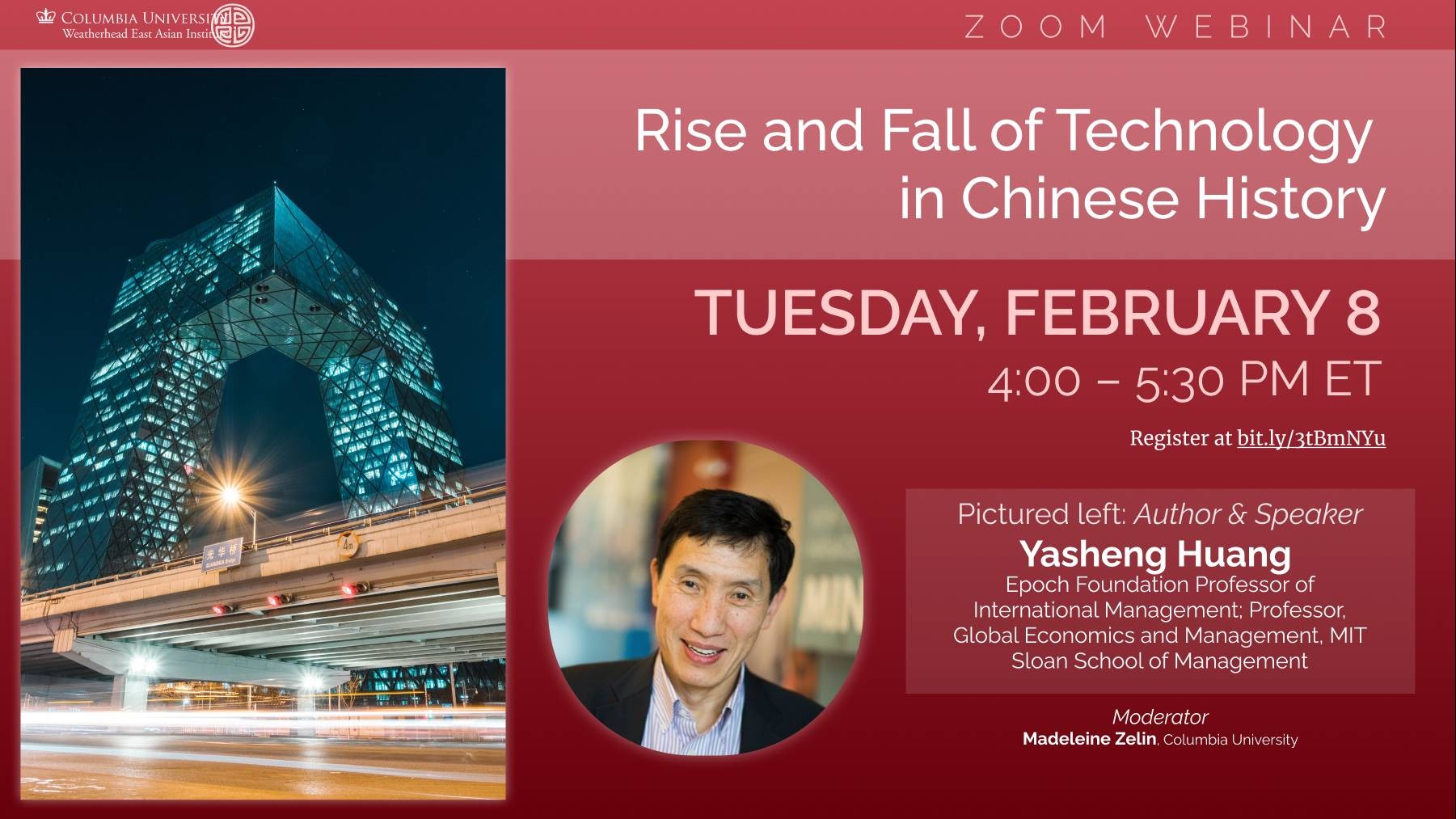Watch the recorded event here: https://youtu.be/TR8sH0VQbFs
Speaker:
Yasheng Huang, Epoch Foundation Professor of International Management; Professor, Global Economics and Management, MIT Sloan School of Management
Moderator:
Madeleine Zelin, Dean Lung Professor of Chinese Studies; Professor of History, Department of East Asian Languages and Cultures and Department of History, Columbia University
Joseph Needham famously asked why China did not have its own Industrial Revolution. Using a newly constructed database, Yasheng Huang will show that China’s technological collapse happened much earlier than previously thought and the collapse coincided closely with the rise of autocracy and ideological homogeneity.
Here is an excerpt from his book:
My book has five parts, and the content is roughly split between history and the PRC. After this chapter, the three chapters in Part I deal with the E component of the EAST formulation. Two chapters are devoted to the keju exam; the other chapter is devoted to a panoply of tools employed by the CCP to achieve homogeneity. The two chapters in Part 2 deal with autocracy and the evolution of autocracy during the imperial and Communist eras. Part 3 analyzes the stability of regimes during the two eras. Part 4 tackles technology. One chapter traces the history of the rise and fall of Chinese inventiveness during the dynastic era; the other chapter delves into the present time and tells the story of how the CCP utilizes its scale advantage in combination with importation of scope functions to advance its science and technology. AI, biotechnology, and publication of scientific papers feature empirically in my telling of this story. Part 5 opens with a discussion of why China has failed to converge with the rest of East Asia by moving down a path of scope expansions. The chapter revisits a major topic in history—why Japan responded to the West effectively through the Meiji Reformation, whereas China descended into civil conflicts and chaos under similar pressures. I will also come back to a topic I initiated earlier in this chapter—the scale and scope contrasts between China and India. The final chapter is an assessment of China on a number of issues.
Yasheng Huang is Epoch Foundation professor of international management, professor of global economics and management, and faculty director of action learning at Sloan School of Management, Massachusetts Institute of Technology. He is currently involved in research projects in three broad areas: 1) political economy of contemporary China, 2) historical technological and political developments in China, and 3) as a co-PI in “Food Safety in China: A Systematic Risk Management Approach” (supported by Walmart Foundation, 2016-). He has published numerous articles in academic journals and in media and 11 books in English and Chinese. His book, The Rise and the Fall of the EAST: Examination, Autocracy, Stability, and Technology in Chinese History and Today, will be published by Yale University Press in 2023.
This event is sponsored by the Weatherhead East Asian Institute.

